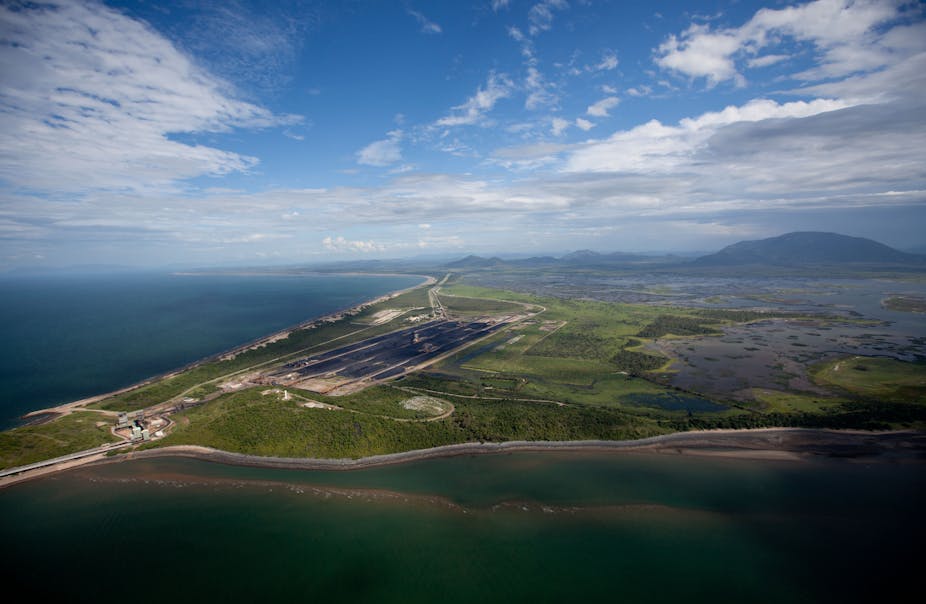By the end of this week we will know whether the Great Barrier Reef Marine Park Authority will allow dredge spoil from the Abbot Point port redevelopment to be dumped within the park’s boundaries.
The port expansion, which was approved by federal environment minister Greg Hunt in December, will generate three million cubic metres of spoil – weighing some five million tonnes.
That’s not all. Over the coming decade, projects at all of the major ports along the Great Barrier Reef coast – Cairns, Townsville, Hay Point (Mackay) and Gladstone – could create as much as 80 million cubic metres of spoil. And even more dredging will be needed at Abbot Point to make room for future exports from Waratah Coal’s Alpha North project.
Is there an alternative to dumping all of this material on and around the Great Barrier Reef? Yes. There are several options, the most obvious of which is to put the spoil behind a retaining barrier called a “bund wall”. But unlike at Gladstone Harbour, where the bund wall leaked, it will need to be done properly (as, indeed, it will from now on at Gladstone, where Minister Hunt has ordered the use of a non-leaking bund wall for future dredging).
Water conditions
Minister Hunt has put 95 environmental conditions on the Abbot Point project, insisting that the measures will “result in an improvement in water quality” for the Great Barrier Reef. He also pointed out that the site was “already heavily industrialised” before the current government came to power.
The conditions call for the negative effects of dumping dredge spoil on the reef to be “avoided, mitigated or offset”. These “offsets” aim to stop sediment entering the Great Barrier Reef Marine Park from land sources such as farm run-off.

By Minister Hunt’s calculations, the conditions will deliver a 150% net benefit to water quality for the Great Barrier Reef, with effects that will outlive the current port expansion plans along the coast.
But the likelihood of this promise being realised is very low. Dredging and spoil dumping will produce both acute turbidity and sedimentation effects on communities such as seagrass and inshore coral reefs in the marine park. And there will be longer-term chronic effects as the sediment is slowly redistributed throughout the reef by resuspension and coastal currents.
Meanwhile, it will take decades to deliver the promised offsets by reducing sediment discharge from land sources such as cattle rangelands. Management of many of the most important sediment sources (such as gully erosion) in the big grazing catchments like the Burdekin and Fitzroy are currently intractable problems.
Alternative option
Clearly, it will be preferable not to dump the dredge spoil from Abbot Point and elsewhere inside the Great Barrier Reef Marine Park.
The most obvious alternative is to place the spoil behind a bund wall next to the coast. This would also have the benefit of increasing port land, an important consideration at Abbot Point as useable land is scarce. On the other hand a small area of the GBR World Heritage Area will be alienated. The idea of port land being built up from dredge spoil was already suggested in the plans for the proposed multicargo facility at Abbot Point, later cancelled by the Queensland government.
Of course, the bund wall would need to be built and managed well – not at all like the fiasco at Gladstone Harbour, where an improperly constructed bund wall leaked for six months in 2011 and 2012.
There are other options too, such as building longer jetties with less need for dredging. The emphasis should be on designing ports in ways that safeguard the Great Barrier Reef, rather than causing damage and then trying to fix it.

